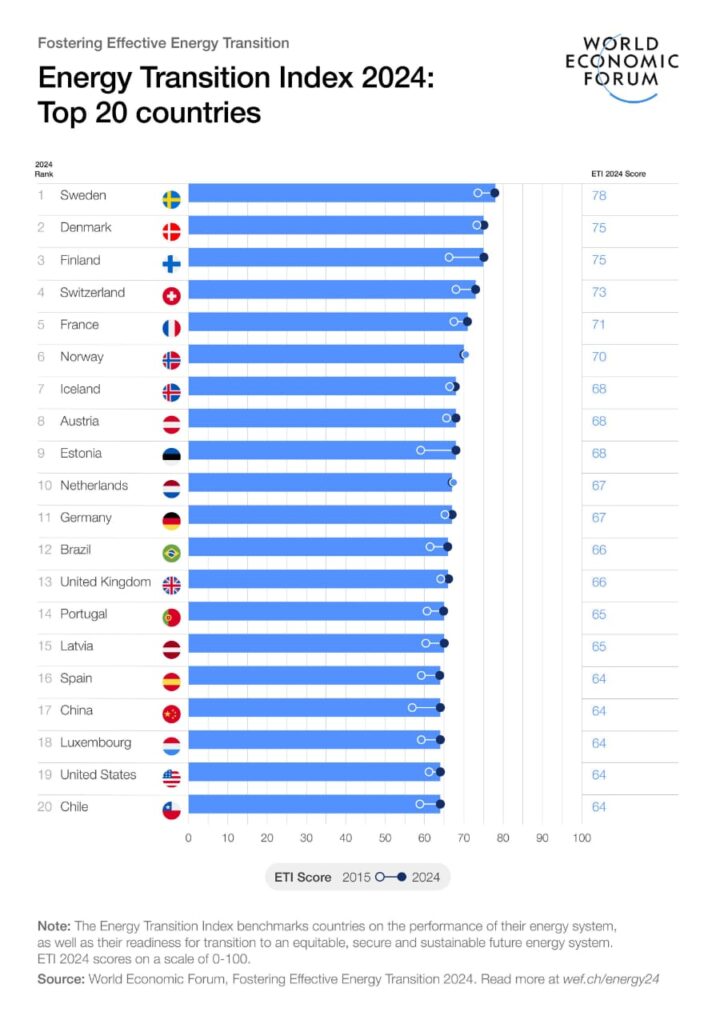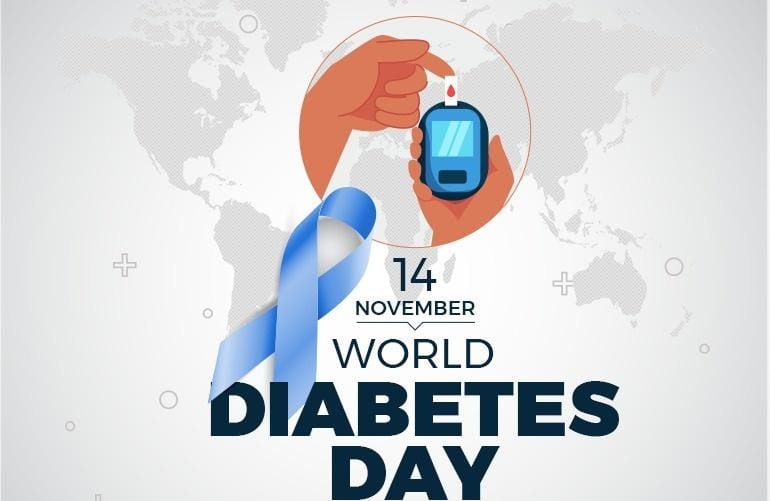The World Economic Forum (WEF) has recently released its global Energy Transition Index (ETI), in which the organisation ranked India at 63rd spot, up from the 67th rank last year. European countries dominated the list with Sweden grabbing the 1st position. Denmark, Finland, Switzerland, and France grabbed the next four spots. In the list, India’s neighbour China secures 20th position.
Key highlights
- As per the report, India and some other developing countries including China and Brazil have performed well, while 83% of countries have shown a downward trend as compared to their last year’s performance on key parameters- security, equity, and sustainability.
- The report also mentions the need to create awareness and policy interventions for better energy management. This includes guidelines for building energy-efficient infrastructure and incentives for retrofitting. It also suggests making changes in rules in developing countries as per the requirements.

Recognition of India’s efforts
- The WEF praised various initiatives taken by India in this regard. It stated that the country is showing the path to getting better outcomes that can be implemented by other countries. It particularly mentioned India’s improvement in energy equity, security and sustainability.
- The WEF also noted India’s progress in the renewable energy segment and found it in a robust position for green tech manufacturing.
- The report highlighted India’s emphasis and progress in developing clean energy infrastructure. India’s renewable and biomass energy accounts for 42% of the total power generation capacity, making it the fourth-largest market in the world in terms of renewable energy.
- India’s investment of a whopping $10 billion annually towards driving electric vehicle (EV) adoption and the generation of green hydrogen has also been appreciated.
- India’s strategy to use energy for income generation and assist micro-entrepreneurs in utilising renewable energy for their businesses attracted attention. Furthermore, India has also focused on the affordability of renewable energy to encourage adoption and ensure benefits to local communities.
- India’s per capita emission, which is 1.7 tonnes of CO2, is 60% lower than the average global per capita emission, which is 4.4 tonnes of CO2.
Concerns raised by the report
- Coal-based emissions are a concern, particularly for India and China.
- Global uncertainties have affected progress and the world lost momentum.
- The report highlights the necessity of investment in energy-efficient practices and technology.
About the World Economic Forum (WEF)
- The WEF is an international organisation headquartered in Geneva, Switzerland. Leaders from various fields come together to outline global, regional and economic agendas.
- German scholar, Klaus Schwab established European Management Forum in 1971, which was later renamed the WEF in 1987. In 2015, the WEF was recognised as an international organisation.
- Besides the Energy Transition Index, WEF publishes many other reports including Global Competitiveness Report, Global Risk Report, Global Gender Gap Report, and Global Travel and Tourism Report.











